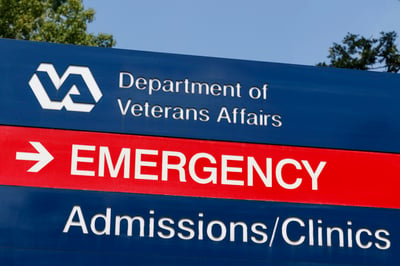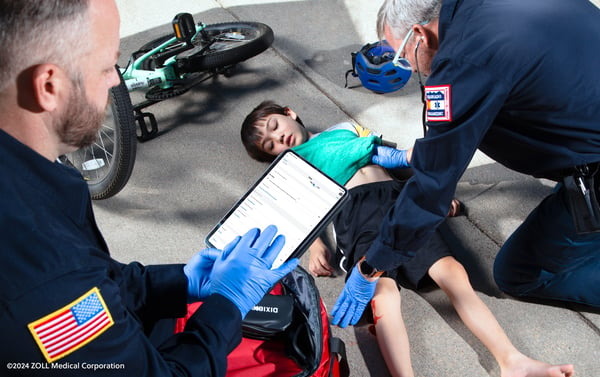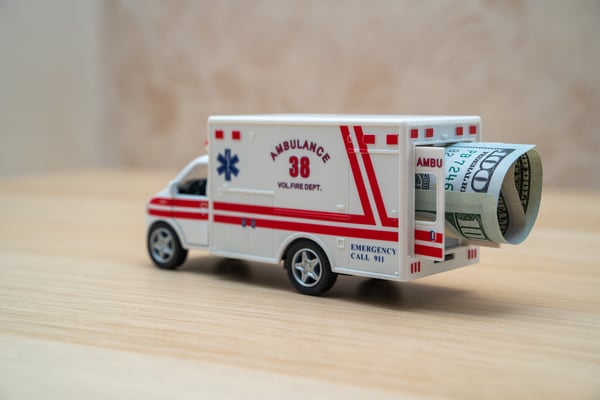Chart Smarter: Why One EMS Agency Ditched Paper for Mobile Tech
Understanding How to Get Paid by the Department of Veterans Affairs for Ambulance Transports
(3 min read) Getting reimbursement for ambulance transport from the U
Was this information valuable?

(3 min read) Getting reimbursement for ambulance transport from the U.S. Department of Veterans Affairs (VA) can be challenging. For example, the VA now wants electronic submissions, but does not explain how to submit a clean claim and get paid. During the recent ZOLL Summit Series EMS Billing event, Holly Shryock, National Provider Engagement Manager, Payment Operations and Management for the Veterans Health Administration (VHA) Office of Community Care, provided many valuable tips for electronic claim submission that will help your organization get paid.
During her presentation, Ms. Shryock discussed the latest rules for emergent transport eligibility. While emergent care and transport eligibility is still authorized retroactively upon notification from the medical center, there were changes to the eligibility criteria, effective June 6, 2019, that shifted one of the main eligibility parameters from the Veteran’s service-connected status to the network status of the medical center to which the Veteran was transported. Now, if emergent care is authorized, it is highly likely that the transport will be authorized, as well. In addition, the transportation service provider need not notify the new centralized notification center, as the transport will be linked to the notification of emergent care coming from the medical center. If emergent care is not authorized, the transport eligibility will fall back to the Veteran’s beneficiary travel eligibility.
This change means that the larger the network, the more likely it is that a Veteran is being seen in-network. Likewise, the more Veterans are seen in-network, the more likely it is that the VA is notified of the emergent episode in a timely manner (within 72 hours of intake). When the VA is notified of the emergent episode in a timely manner, it is more likely that it will authorize the emergent care and thus, the transport.

Notification must be made within 72 hours of admission for the emergency treatment to be considered under the Authorized Emergency Community Care Program, and the care must be rendered in a contracted facility. Veterans must continue to receive authorization from the VA prior to transport in non-emergent situations. Because emergency transport authorization is directly impacted by the authorization of emergency care, Ms. Shryock laid out the foundation for care to be authorized as emergent:
- A medical emergency is described by VHA as an injury, illness, or symptom so severe that without immediate treatment, a Veteran believes their life or health is in danger.
- In such cases, Veterans do not need to check with VA before calling for an ambulance or going to an emergency room.
- There is no clinical criteria for assessing an emergent situation. It includes any medical condition that “a person possessing an average knowledge of medicine and health, would believe is of such a nature that failure to obtain immediate medical care could result in placing the patient’s health in jeopardy.”
Ms. Shyrock provided session attendees with a link to sign up for the VHA Community Care newsletter, ProviderAdvisor. The newsletter provides the latest updates on VA community care program changes, resources, etc. It is the source for providers, including transportation companies, to get the most current data on community care programs.
Read More About EMS Billing Best Practices:
Leveraging Technology to Augment the EMS Billing Process and Experience
Related Posts
The End of Delayed Documentation
4 Must-have Data Points for Dispatch-Billing Alignment and Maximum Reimbursement
ZOLL Pulse Blog
Subscribe to our blog and receive quality content that makes your job as an EMS & fire, hospital, or AR professional easier.
ZOLL Pulse Blog
Subscribe to our blog and receive quality content that makes your job as an EMS, fire, hospital, or AR professional easier.




